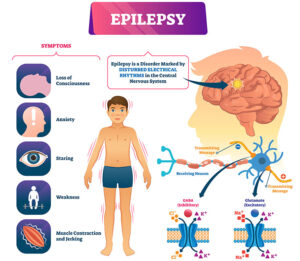Introduction
Dizziness is a common symptom that many individuals experience at some point in their lives. It is characterized by a sensation of lightheadedness, unsteadiness, or a spinning or whirling sensation. Dizziness can be caused by various factors, ranging from benign conditions to underlying medical issues. Understanding the symptoms, seeking appropriate diagnosis, and finding effective treatments are important steps in managing dizziness.

Symptoms
Dizziness can manifest in different ways, and individuals may experience various accompanying symptoms. Some common symptoms include feeling off-balance, a spinning sensation (vertigo), unsteadiness, faintness, lightheadedness, blurred vision, nausea, or a general feeling of being disoriented. These symptoms may occur spontaneously or in response to specific triggers, such as changes in position or certain environments.
Diagnosis
Receiving a proper diagnosis for dizziness often involves a comprehensive evaluation by healthcare professionals, such as doctors or ear, nose, and throat specialists. They will take a detailed medical history, conduct a physical examination, and may order additional tests to identify the underlying cause. These tests may include blood work, imaging scans (such as MRI or CT scans), or vestibular function tests to assess the inner ear’s balance system.
Treatment
The treatment for dizziness depends on the underlying cause. In some cases, lifestyle modifications and self-care strategies may be sufficient. These can include staying hydrated, avoiding triggers (such as certain foods or motion), and practicing relaxation techniques. If an underlying medical condition is identified, treatments may involve medications, physical therapy, or surgical interventions. It is essential to follow the healthcare professional’s guidance and treatment plan for optimal management.
Life Style Changes
Experiencing dizziness can have significant impacts on an individual’s life. It may lead to limitations in daily activities, difficulties with work or school, and a decreased sense of independence. Dizziness can also affect one’s emotional well-being, causing anxiety, fear, or frustration due to the unpredictability and discomfort associated with the symptom.
As a human, adapting to life with dizziness involves finding strategies to manage symptoms and minimize their impact on daily life. This may include making environmental adjustments, such as avoiding crowded or visually stimulating places, using assistive devices for stability, or modifying exercise routines. Seeking support from healthcare professionals, participating in vestibular rehabilitation programs, and connecting with support groups can provide valuable guidance and a sense of community.
It is important to be patient and proactive in managing dizziness. Identifying triggers, maintaining a healthy lifestyle, and learning coping techniques can contribute to better symptom control and overall well-being. While the experience of dizziness may require adjustments, it is possible to find ways to navigate life and pursue activities that bring joy and fulfillment.
Remember, each person’s experience with dizziness is unique, and finding the most effective treatments may involve some trial and error. With proper support, self-care, and a positive mindset, individuals can regain a sense of stability and continue living a meaningful life despite the challenges posed by dizziness.







